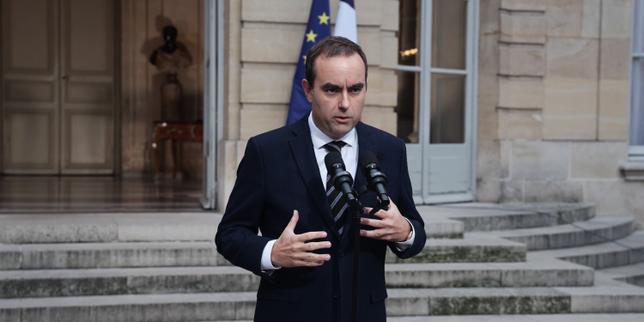Sébastien Lecornu's Shift: No More Article 49.3 for Budget 2026
Prime Minister Sébastien Lecornu announced a major shift by renouncing article 49.3 for the 2026 budget, aiming for greater parliamentary engagement.
- • Lecornu renounces article 49.3 for budget engagement.
- • The decision aims to foster compromise with opposition parties.
- • Historically, 49.3 was used to pass all budgets since 2022.
- • Critics argue the government still has other means of power.
Key details
In a significant policy shift, Prime Minister Sébastien Lecornu announced on October 3, 2025, that the government will not invoke article 49.3 of the French Constitution for the 2026 budget. This constitutional provision allows the government to pass legislation without a parliamentary vote, and its prior use has been a cornerstone of the government's legislative strategy since Emmanuel Macron's re-election in 2022, due to a lack of majority support in the Assembly.
Lecornu's decision aims to engage opposition parties more constructively and avoid government censure. He stated, "As the government can no longer interrupt debates, there is no excuse for these discussions not to start next week," signaling a commitment to parliamentary dialogue. This marks a notable shift in strategy as the Prime Minister recognizes that effective governance will require building compromises with opposition factions, including the National Rally and leftist parties.
Historically, article 49.3 has facilitated the passage of critical national budgets, but its abolition for the current budget cycle illustrates an acknowledgment of increased parliamentary power amid a fragmented legislature. Lecornu described the current political climate as "the most parliamentary moment of the Fifth Republic," emphasizing that the government must adapt its governance methods.
He indicated plans to propose a list of government members willing to participate in a new collaborative governance model with the National Assembly, aiming to foster bipartisan discussions on pressing issues, including pension reforms. Lecornu also hinted at upcoming policy announcements aimed at addressing hardships and promoting gender-related reforms in pension schemes.
Critics like Socialist deputy Boris Vallaud expressed skepticism, arguing that while renouncing article 49.3 is a step forward, the government retains other constitutional mechanisms to maintain decision-making authority in Parliament. Ultimately, this announcement signals a critical pivot towards more inclusive political engagement as the government seeks to navigate a complex legislative landscape.
This article was translated and synthesized from French sources, providing English-speaking readers with local perspectives.
Source articles (2)
Source comparison
Cabinet members proposal
Source 85107 mentions Lecornu proposing a list of cabinet members for collaboration, while Source 85115 does not mention this.
lemonde.fr
"Lecornu's announcement does not include a proposal for cabinet members to engage with the National Assembly."
lefigaro.fr
"Lecornu indicated he would propose to President Macron a list of cabinet members willing to engage in a collaborative approach."
Why this matters: This discrepancy is significant because it indicates a specific strategy Lecornu is planning to implement to foster collaboration with the opposition, which could affect the dynamics of future legislative sessions. The absence of this detail in one source may lead readers to underestimate the government's efforts to engage with opposition parties.
Latest news
Pau's Local Election Campaign Gathers Momentum Amid Broader Political and Economic Concerns
French Companies and Regions Accelerate Efforts in Nature-Related Economic Transition
France Heightens Military Readiness Amid Iran Conflict, Pledges Defense Support to Gulf States
Jean-Luc Mélenchon Faces Accusations of Antisemitism Over Joke on Raphaël Glucksmann's Name
Tensions and New Faces Mark the 2026 French Municipal Elections
France Bolsters Military Presence in Gulf Following Iranian Drone Attacks
The top news stories in France
Delivered straight to your inbox each morning.


